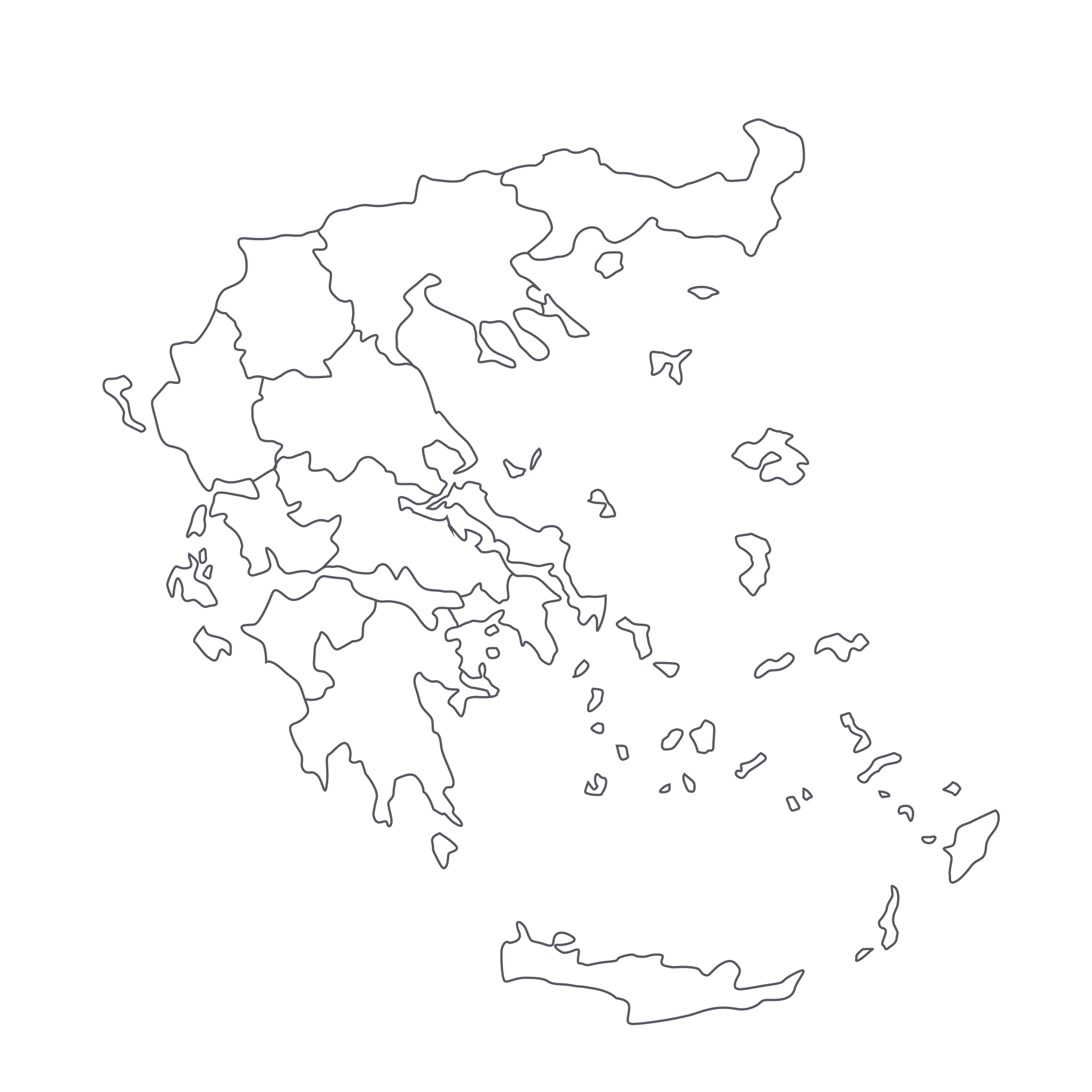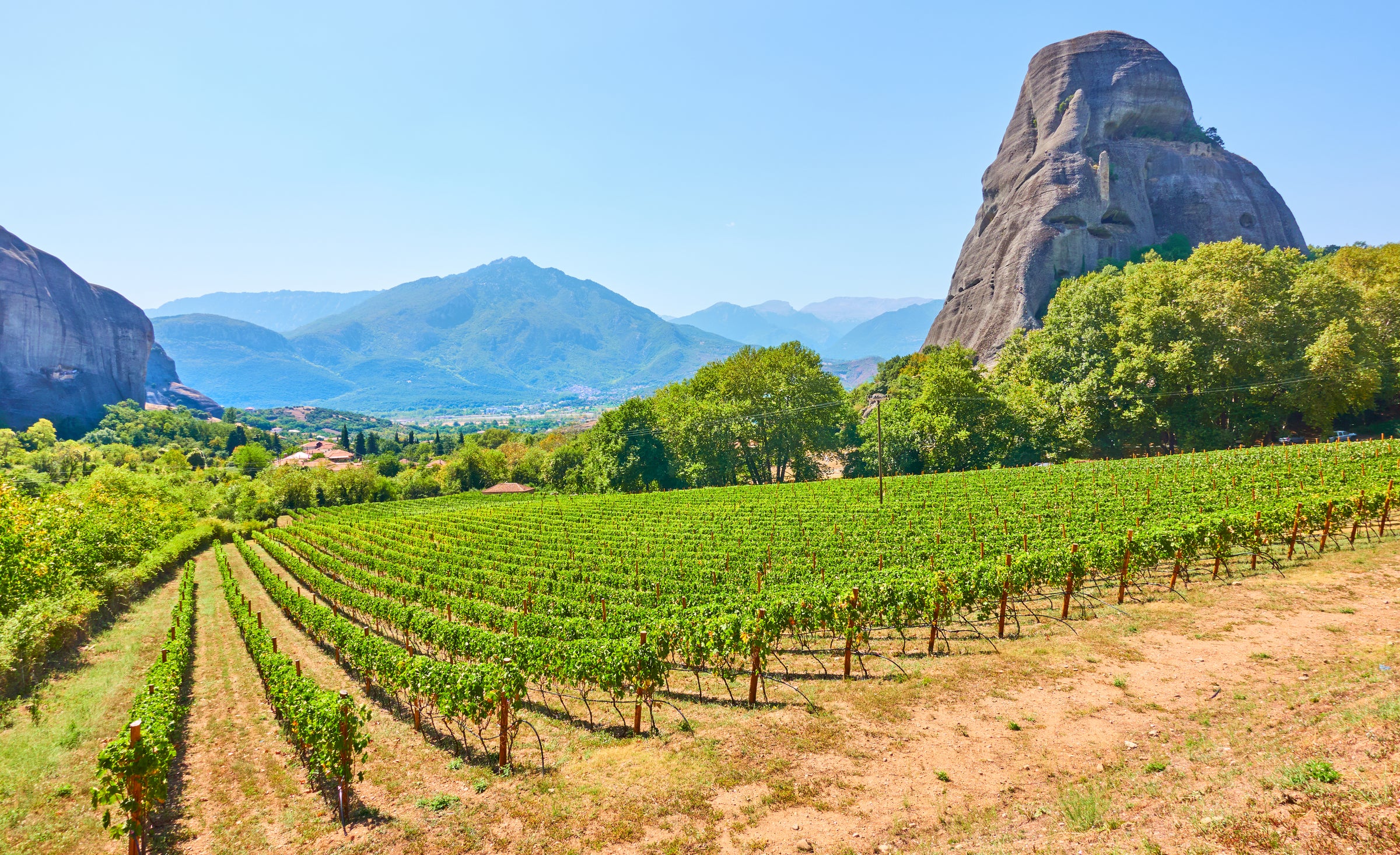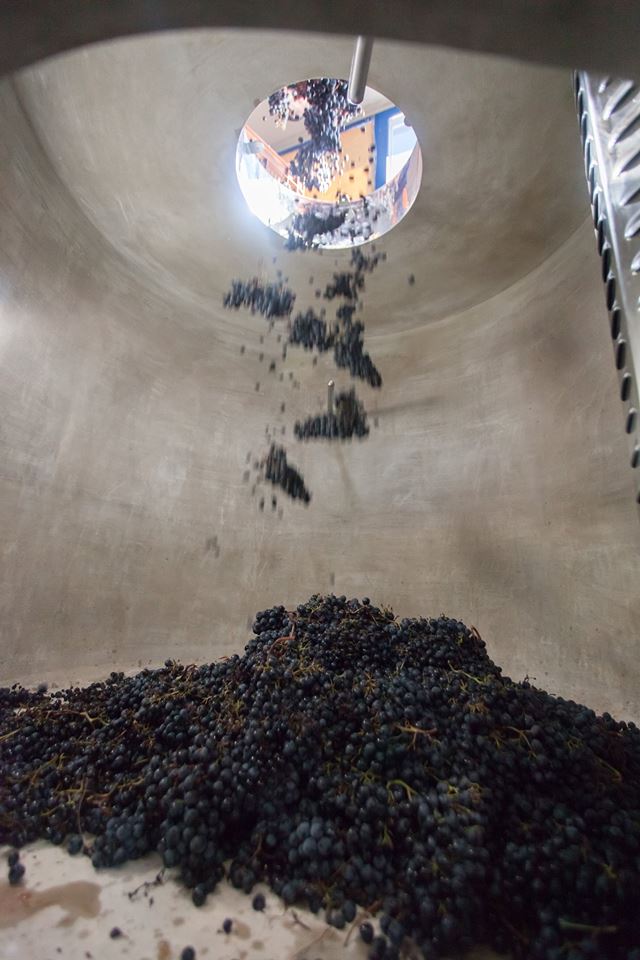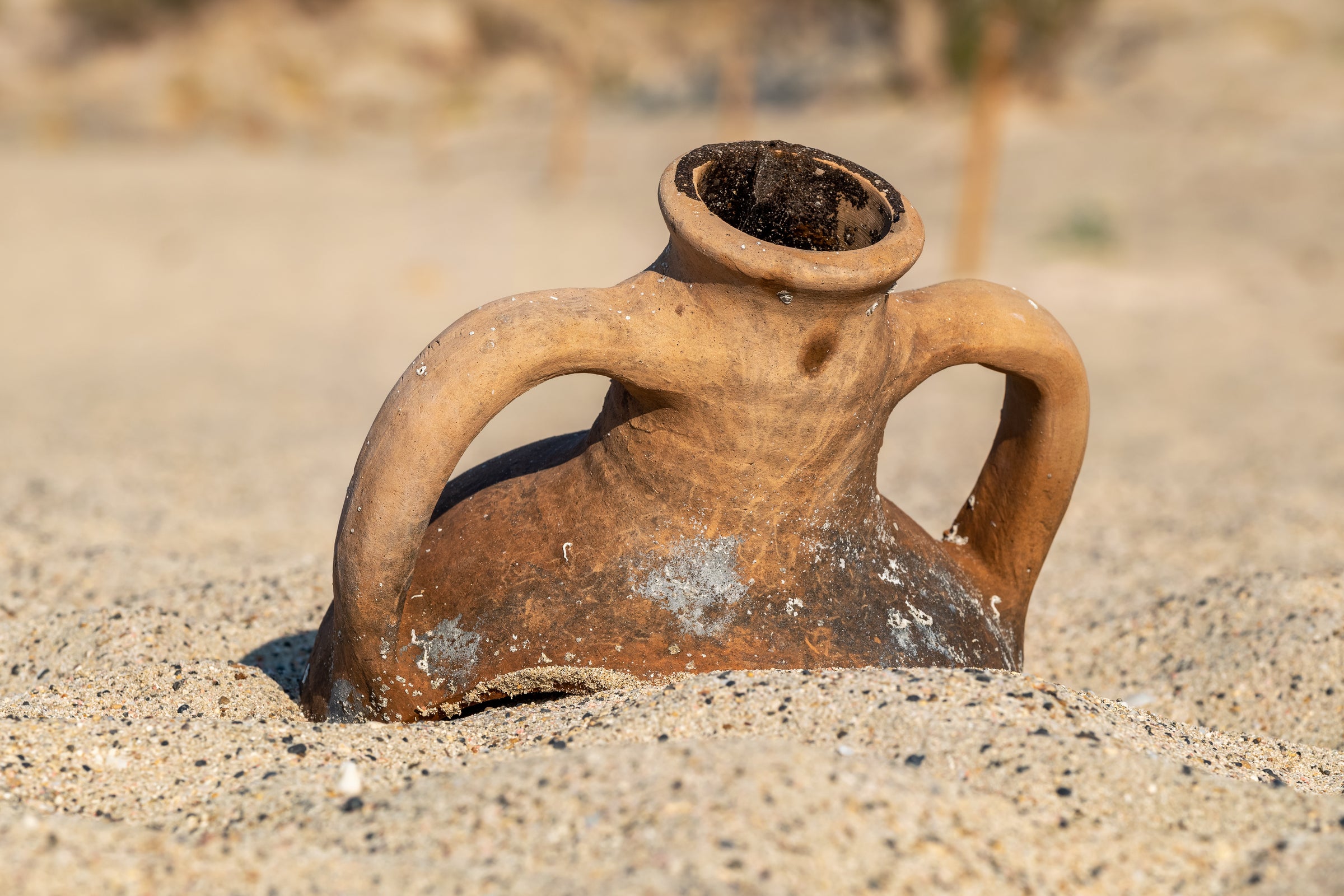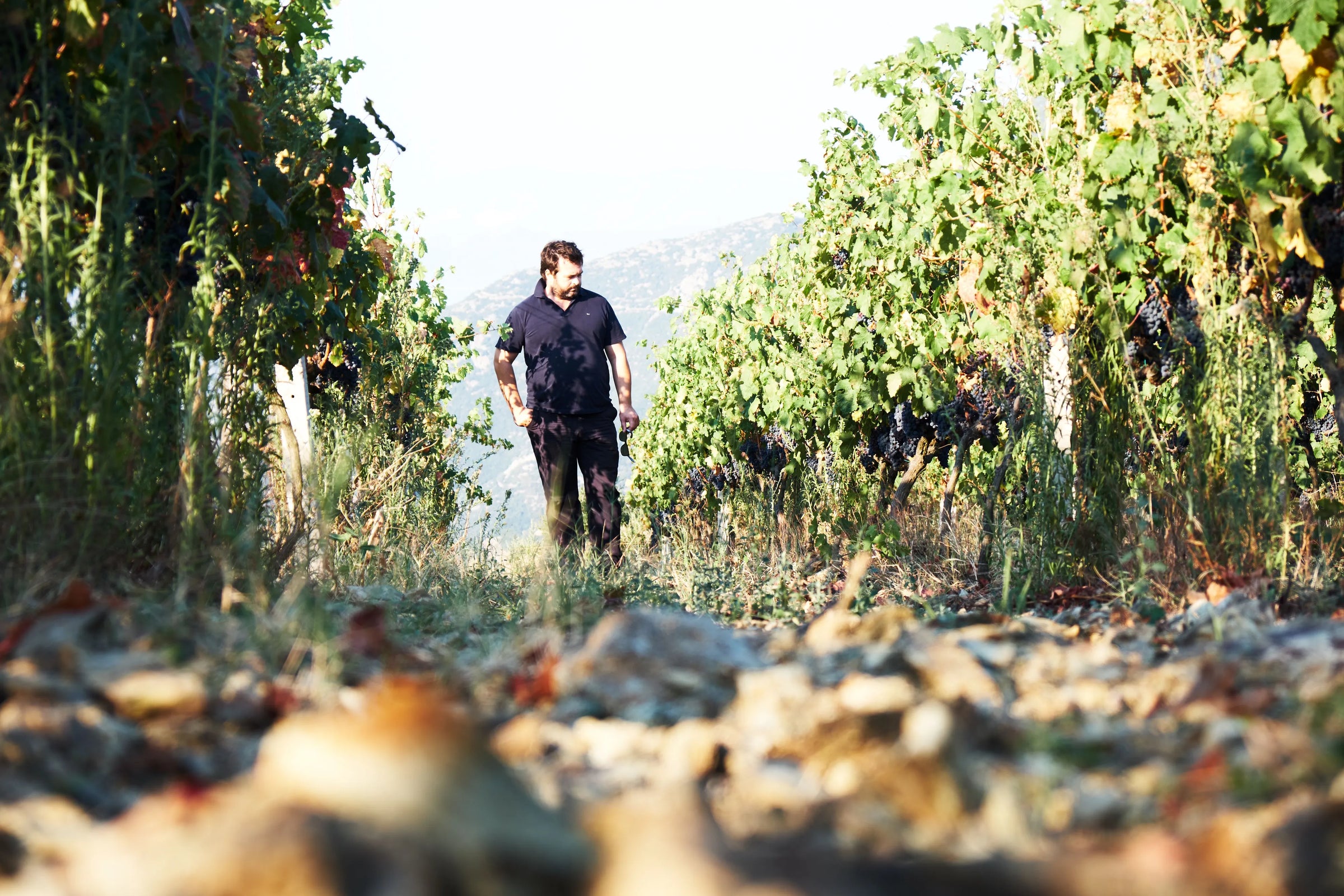Santorini legend Haridimos Hatzidakis didn’t receive the moniker “The Wizard of Wine” overnight: this took decades of innovative, industry-leading work that resulted in far-reaching shockwaves that still reverberate today. Considered by many to be the most talented winemaker to ever grace the island—a mighty feat in and of itself—he spent decades being a fearless champion of organic farming, indigenous yeasts, and minimalist winemaking. His creations first stunned locals in the ‘90s, then importers, before eventually making their way into top wine lists and retail shops around the world. Quite simply, Assyrtiko would not enjoy the global fame it does today without his presence.
Sadly, Haridimos passed away in 2017, and the world paused to pay their respects to one of the most important figures in modern-day wine. His eldest daughter, Stella, has since taken over and this 2018 represents her first unassisted vintage. It’s as if Haridimos is still hard at work in his organic vineyards and notoriously disheveled cellar because one taste of today’s luxuriously textured mineral powerhouse doesn’t miss a beat. Above all, “Familia” is a fiercely individualistic white from one of wine’s most extreme locales and at a mere $39, you’re essentially getting a VIP backstage pass that takes you on a fully immersive experience. Buckle up.
Sometime between 1645 and 1500 BC, the volcanic eruption of Thera on modern-day Santorini became one of the largest seismic events in recorded history, leaving behind a crescent-like caldera in the midst of the Aegean. Believed to be over 100 times more powerful than the 1980 eruption of Mount St. Helens, the blast, among other natural fallout, discarded megatons of ash and lava that now make up the volcanic, igneous soils of Santorini. I’m amazed that we’re able to offer wines like this—wines from places so extreme and remote it seems impossible that they’d be consumed, let alone known about, anywhere other than where they’re made.
But here we are, offering up an evocative white from mythical Santorini, where seaborne breezes are so fierce that growers must fashion their vines into short, basket-like coils instead of training them on trellises. Vineyards on Santorini, rooted in infertile, ashy sands, look like rows of large nests, in which you might find dinosaur eggs instead of grapes. Many vines here are very old, sometimes hundreds of years, as Santorini is one corner of the world that never had to contend with the phylloxera louse that destroyed most of Europe’s vineyards generations ago (most of the places that escaped phylloxera had sandy and/or volcanic soils).
Coming from organically farmed vines ranging from 15 to 18 years old, today’s 100% Assyrtiko is a masterclass on authenticity. While we typically associate oak with pricier, overall finer wines, that’s certainly not the case with Santorini: The best wines here age on their raw lees in stainless steel. “Familia” fermented on indigenous yeasts, matured for six months in stainless, and was then bottled with low amounts of sulfur so as to best showcase the monumental power, tension, and acidity of Assyrtiko.
It rarely, if ever, rains on Santorini, and there’s no irrigation, so the vines grab what moisture they can from the sea air. This became readily apparent on my first taste of today’s 2018: there’s an unmistakable saline quality on the palate mingling with an almost smoky, crushed volcanic rock minerality. These savory qualities are enhanced by rich notes of yellow peach, yellow apple skin, mango peel, green pear, salted lemon rind, seaspray, and citrus blossoms. This exotic display of aromas transfers directly onto the thundering palate, revealing a Santorini that is equipped with hedonistic Grand Cru weight. It’s racy and mouthwatering, sure, but there’s a profound amount of texture, depth, and length to be had—all on an everlasting bed of volcanic minerality. Serve in large Burgundy stems after a 15-30-minute decant and remember that while it’s already liquid insanity right now, this will keep maturing into a fine, beautifully composed Assyrtiko over the next 3-5 years.


